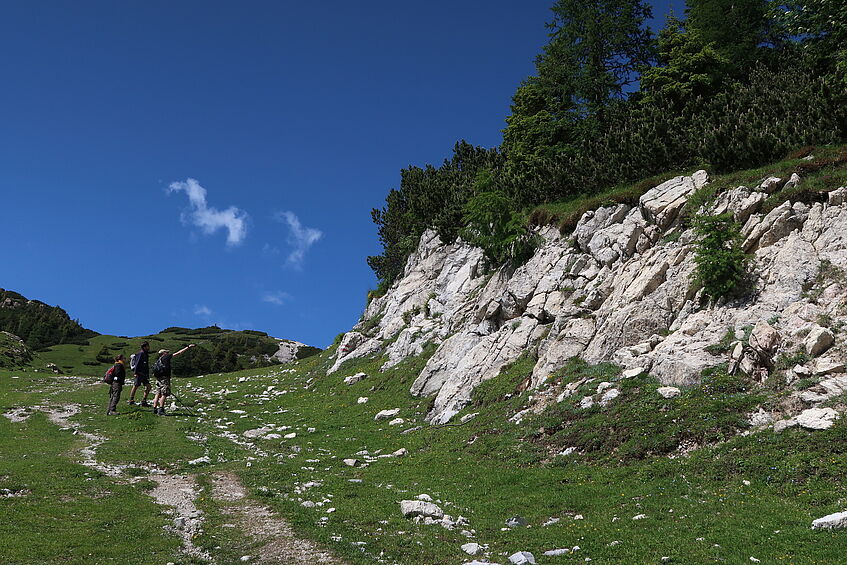Earth Sciences (Master)

© Franziska Pezzei
The master’s programme in Earth Sciences provides students with a comprehensive education in earth sciences and a specialisation in one of the following four subject areas: geology, mineralogy and geo-materials, palaeobiology and geobiology, or applied geosciences. Graduates have acquired knowledge of field work in earth sciences, modern methods of observations in the field, laboratory work and instrumental analytics, computer-based data analysis and quantitative modelling. By expanding their theoretical and practical knowledge, they have developed the basis for independent academic and application-oriented work. Therefore, graduates of the master’s programme in Earth Sciences are particularly qualified to think in interdisciplinary and multi-scale terms. The specific knowledge and practical skills acquired during the programme prepare them for future employment, in particular in application-oriented areas of earth sciences and in academic research.
The instruction languages are German and English, therefore English language knowledge is recommended at B2 level (according to Common European Framework of Reference).
Master of Science
Degree Programme Code:
066 815
4 semesters / 120 ECTS credits
Language: German
NO entrance examination
Facts & Figures
- Students: n.a.
- Graduates in the last academic year: n.a.
- Number of semesters needed for graduation (median): n.a.
Data updated on: 03.12.2024
Attention
Instruction Language German
Please note that the instruction language of this programme is German. To start the degree programme, you need to hold a certificate of German proficiency on C1 level.
Admission Procedure
Information about the admission procedure
Information on Previous Studies:
In any case eligible degree programmes at the University of Vienna:
Study Programme
The master’s programme consists of a core module, compulsory modules (to choose from: geology, mineralogy and geo-materials, palaeobiology and geobiology, or applied geosciences), elective modules, a master’s thesis and a master’s examination.
Five Concepts
which you will deal with during your studies:
- Hydrogeology
- Mineralogy
- Palaeobiology
- Lithosphere dynamics
- Sedimentology
... and many more.
Overview of the programme structure & topics
Here you find the current offer of courses for this programme to gain better insight into the topics and structure. For more information please click on the respective level.
After Graduation
Graduates can pursue a career in the following occupational fields:
- research institutions
- industrial sector, construction industry, construction and civil engineering office
- public authorities and administrative office
- museum
- insurance companies
- international organisations
- science journalism.
Graduates' Perspective on the Degree Programme
Graduates ...
- say that this degree programme receives the grade: 2.0 (good)
- rate the level of difficulty as: 3.7 (high)
→ These results are based on feedback from 20 graduates.
*You can find further assessments of the degree programme from its graduates’ perspective in the graduate survey of the master's programme in Earth Sciences (in German).
Graduates ...
- find employment within 4 months after graduation on average.
*You can find further information on career entry and career paths in the tracking of graduates "MA Earth Sciences".
